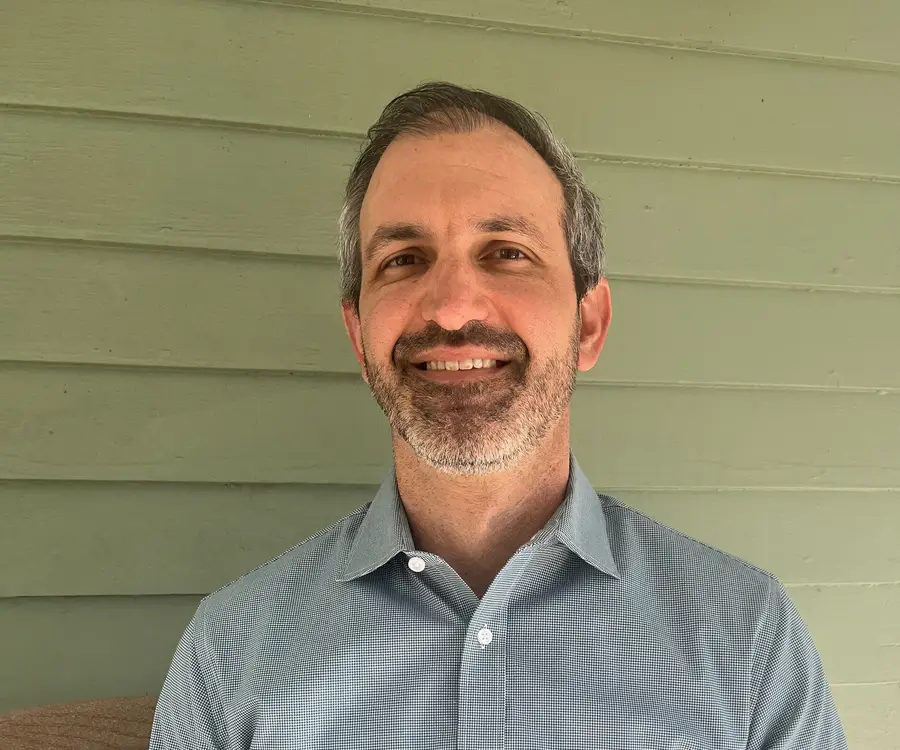
What do you picture when you hear the term “climate change”?
Some see the devastating environmental impacts of a rapidly warming planet—glaciers melting, more frequent and dangerous natural disasters, severe droughts, ecosystems forever changed. Others see the real-time consequences on human health: more heat-related deaths, pollution worsening existing health conditions such as asthma, and mosquitoes spreading deadly diseases farther across the globe.
Daniel Lapidus, Climate Liaison and Director of Sustainable Food and Agriculture Systems at RTI, sees all of this as connected by a common thread: food. Lapidus works at the intersection of climate change, agriculture, and food security, where these forces constantly shape each other. He has seen firsthand how intricately linked our wellbeing is to that of our planet, and the importance of economically viable, sustainable agriculture in maintaining that balance.
From Local Farming to Global Climate Work
Lapidus knew from a young age that he wanted to help people. “Social justice was always a value that I had—I knew I wanted to do something that provided positive impacts to society.” After studying anthropology and premedical sciences at the University of Virginia, he worked on a chicken farm and on an avocado orchard internationally before joining the Peace Corps. He served in Ecuador for two years, providing support to small businesses led by indigenous Quichua women and harvesting crops. Often, the communities he was living in could only afford to eat one meal per day.
“My interest in agriculture was sparked by those experiences where I was working on farms and with farmers,” he said. “They were formative experiences.”
Building on his Peace Corps experience, Lapidus pursued a master’s degree in international economics at Johns Hopkins University. As part of his studies, he traveled to Bolivia and Rwanda supporting microenterprises and teaching English. There, he again saw the difficulty that people in low-resource settings have in accessing consistent, nutritious sources of food. These communities often rely on growing their own food, which has become increasingly difficult as natural disasters like drought and floods become more severe and fertile land becomes dry.
“Climate change is very tightly aligned with my interest in agriculture because the folks that are most exposed and the most vulnerable to the impacts of climate change are people that grow their own food. They’re reliant on the rains and soil and temperature, which are very affected by climate change,” he said. In turn, many agricultural practices and byproducts have had devastating effects on our climate: agri-food systems are a major source of greenhouse gases, accounting for 31% of anthropogenic emissions.
Innovative Solutions for Agriculture and Climate Resilience
This feedback loop is difficult to break. In his previous role at the U.S. Department of Agriculture’s Foreign Agricultural Service, Lapidus worked to address the technical and economic barriers that contribute to this cycle in middle- and low-income countries, with a focus on low emissions development strategies from a policy and capacity building perspective. Seeking to pivot to applied, data-focused work, Lapidus joined RTI in 2015, where he has continued these efforts by valuing the socioeconomic impacts of technologies that can be used to implement these strategies, such as remote sensing like satellite imagery and drones, both internally funded and for clients ranging from international philanthropic foundations to federal agencies such as NASA, NIST, and EPA.
“Economics are important because they determine how resources are used. They can help you understand people’s incentives and how people make decisions. They determine who benefits and who doesn’t,” Lapidus said. “So I think studying that was a really important thing to do in order to better understand decision making and resource outcomes.” By viewing potential technologies through an economic lens and prioritizing ecological impacts, Lapidus helps organizations make decisions that can maximize the benefits to people while minimizing negative environmental consequences.
One of his particularly meaningful projects was on valuing the impact of early warning systems for riverine floods in Bangladesh. Lapidus explained “We looked at the value of those tools and found that it was more impactful to invest in strategies to get early warning messages out to more vulnerable populations than to invest in the technologies that would provide additional days of early warning. These kinds of findings can be helpful for policy-makers to better understand where to invest to avoid the worst impacts.”
Bright Spots for the Future of Sustainable Agriculture
Working in climate change is challenging, but Lapidus feels there are some trends that are moving in the right direction. Public sector incentives, more ambitious climate commitments by the private sector, technological innovations, a movement to implement agricultural practices that benefit soil health, and a renewed focus on localized food systems all have the potential to address climate change while strengthening communities’ social and economic wellbeing. “Progress is always slower than we want it to be, but I think people are more and more recognizing the impacts of climate and wanting to do things about it,” he said. “I think there’s a lot of progress out there that we can build upon.”